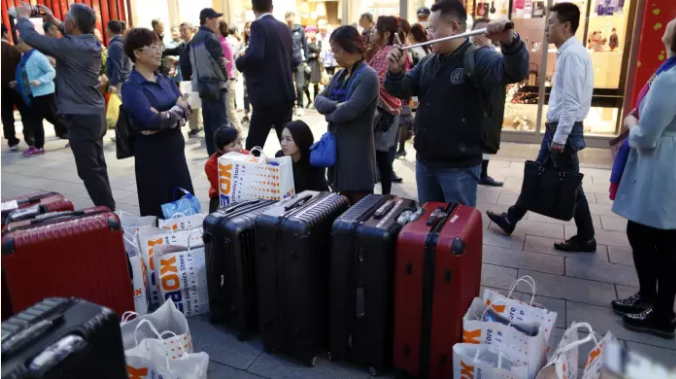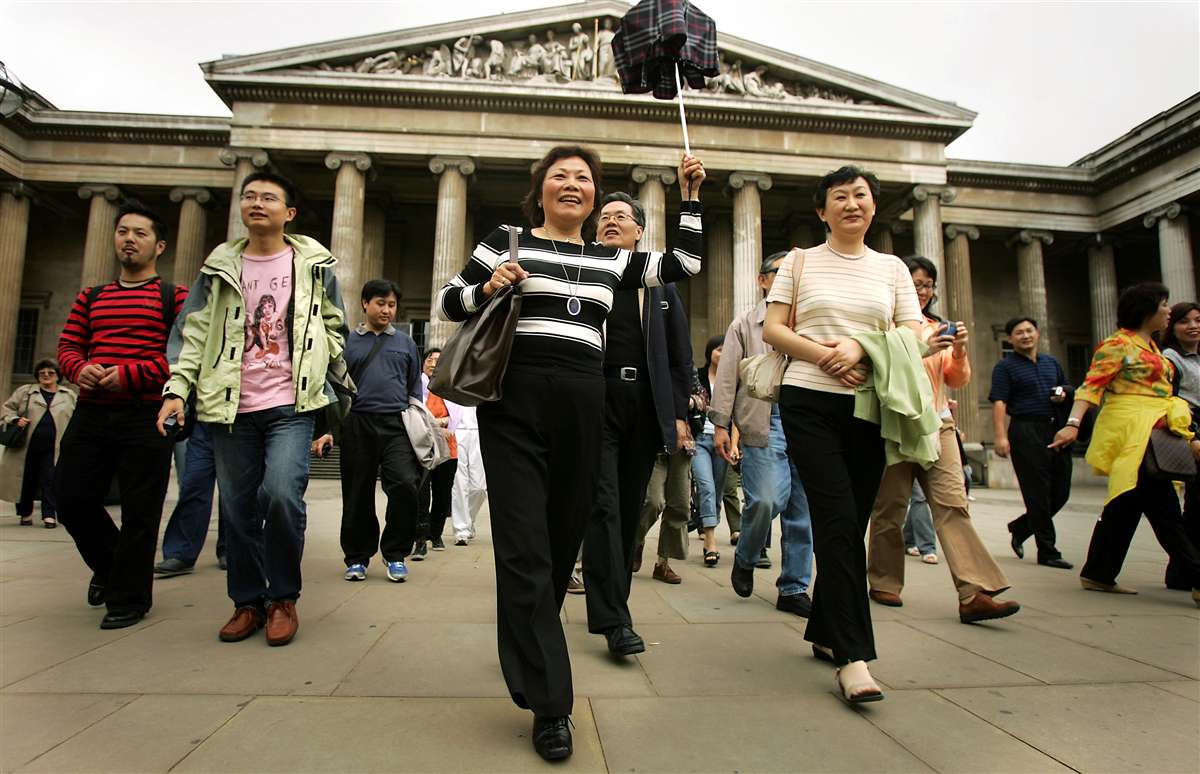Retail plunges among priorities as travellers shift spending to food and sightseeing.
In the past, Chinese tourists were favor of shopping when traveling abroad.
Chinese tourists flocking to European and Asian capitals in record numbers this summer will be spending less on shopping and more on dining and sightseeing as overseas travel becomes more mainstream and the lure of foreign prices diminishes.
Retailers across the world have come to rely on Chinese tourists but the proportion citing shopping as their main travel motivation plunged to one-third this year from more than two-thirds in 2016, according to an annual survey by booking site Hotels.com and Ipsos.
“For the first time in history, shopping is no longer the prime reason for [Chinese] international travel,” said Abhiram Chowdhry, Asia-Pacific vice-president for Hotels.com. “The cliché of Chinese travellers only being shoppers is reducing. It seems like they want more experiential travel.”
The latest annual survey by consultancy Oliver Wyman found that while the average amount spent on an overseas trip rose slightly last year to Rmb20,000 ($3,000), shopping expenditure per trip fell to roughly Rmb6,700, from Rmb8,050 in 2015.
The decline is a consequence of the growing number of Chinese travellers, analysts say. As overseas travel becomes more mainstream, the average disposable income of travellers has decreased.
“It’s become mainstream to the point that there’s lots of different Chinese travellers, as you have with other countries,” said Hunter Williams, a Shanghai-based partner at Oliver Wyman, adding: “This should be taken as a wake-up call. You need to be prepared for a Chinese traveller that is not only interested in shopping . . . They want experiences.”
The findings are echoed in a forthcoming FT Confidential survey that found that spending on shopping as a percentage of average trip expenditure fell to 37 per cent this year from 47 per cent in 2013. The amount spent on accommodation, food and entertainment rose from 31 per cent to 44 per cent.
Zhu Yingbo, a 24-year-old from Chongqing who recently travelled to Thailand with his partner, is typical of lower-income younger travellers who are increasingly heading abroad. “We barely spent money on shopping, either me or my girlfriend,” he said.
There are no official figures on the number of Chinese people travelling abroad, but Beijing says last year its citizens took 122m overseas trips, including to Hong Kong and Macau, an annual increase of 4 per cent.
While 82 per cent of overseas trips are to Asian destinations, long-haul trips to Europe and
the US have increased by 25 per cent and 12 per cent respectively in the past year, according to Hotels.com.
The British Museum is one of the most popular attractions among Chinese tourists / Source CNN
Higher prices for luxury goods in China once pushed shoppers overseas but companies are “harmonising” their prices globally, and border checks on tourists carrying multiple goods into the country have intensified, boosting domestic spending.
The rising proportion of spending on hotels is partly explained by the fact that Chinese people are extending the duration of long-haul trips. Chinese travellers to the US spent an average of 16 days there last year, up from nine in 2015, according to Oliver Wyman.
Tour groups — typified by long lines of tourists with matching hats following a flag-waving guide — have dominated China’s travel industry for decades. But the popularity of the groups is diminishing as people travel abroad more often.
Young people in China’s biggest cities have had more exposure to overseas culture, and many are choosing to travel without groups.
Jane Sun, chief executive of Chinese travel agency Ctrip, told the Financial Times that independent travel was the fastest-growing category in the largest cities.
“The young generation speaks English and they can go abroad on their own,” she said.

